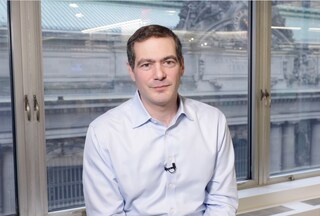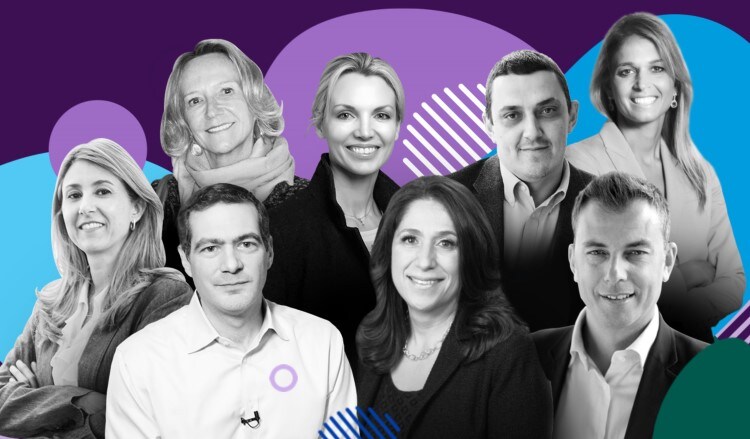Peter Luongo never assumed he would reach the top when he started his career. His unwavering focus on the here and now didn’t allow for such aspirations. And yet, Peter’s aptitude for getting the most out of each day – and being detail-oriented – is what sent his career soaring.
From Philadelphia in the U.S., the married father-of-three has assembled a gender-balanced, diverse management team in Canada (on merit, not remit). Because he believes inclusion and diversity are essential to achieving PMI’s vision of a smoke-free future.
How did your career at Philip Morris International (PMI) begin?
I started my career in investment banking in New York. One of my first clients was Philip Morris Companies Inc., so I guess I’ve been working for Philip Morris in one way or another my entire career. In this role, I had the opportunity to work with many Fortune 500 companies, but Philip Morris was the only one I would have considered leaving investment banking for.
This was for two reasons: firstly, the introduction of better alternatives for adults who’d otherwise continue to smoke is an exciting development to be involved in. Secondly, the company culture is fantastic. The quality of the technological work we are doing, and the scientific rigor we are applying to it, is impressive. And the willingness of our leaders to engage with all stakeholders is so refreshing. All of us have to ask tough questions and engage in conversations to help achieve the smoke-free future which we’ve committed to.
What does it mean to be an effective leader in the 21st century?
It is essential to be a good role model. For example, our company is data driven. If you come with good work and good analysis, then people will listen to you. So, as a leader, I try to emulate that, by being open-minded, looking at things objectively, and making the best decisions I can based on the facts.
How important is it to have gender balance in an organization?
We have a range of products, but the range of adult consumers we service is much wider. If we’re going to talk to all of these individuals, we need to bring different perspectives to the table – including how we interact with them. So, equality and diversity are critical in creating the most effective strategies and solutions for our business today. Alongside that, I believe we must always recruit the best person for the job. The only way to accomplish that is to look for a balanced selection of candidates with the right qualifications, and then decide. If you limit yourself to look only in one area, you’re going to miss people who could have been valuable contributors.
Does that gender balance and diversity have to reach the management level?
Absolutely. It’s interesting – I recently looked at the numbers for my management team. There are nine people representing both genders and eight different nationalities. That wasn’t something that happened by design – it was just the end result of searching for the best person for each position and the business as a whole.
What impact has the EQUAL-SALARY certification had on your organization in Canada?
It was a great milestone for us and we’ve recently built on the global certification that PMI received with our own EQUAL-SALARY certification in Canada. It recognizes everything we’ve done to bring diversity and inclusion to the forefront. Also, it was a worthwhile exercise in itself, because we went through all of our data, and HR practices and procedures. This identified areas for improvement, and taught us new ways to be more inclusive. So, it proved a valuable learning experience for our entire management team.
Who has inspired you most in your career?
There’s one particular senior female executive who sticks out in my mind as being someone who had a particularly big influence when I was starting out in my career. While I won’t name names, to this day, I still admire how effective she was at her job, and how demanding she was of the work that was required. She helped me bring my own work up to a completely different level. It was always about getting the right results for the business, supporting the overall company strategy, and driving the company to where it needed to go. And at the same time, her heart was always in the right place.
How can men and women joining the company find their voice?
First, I think you have to bring your whole self to work to find your true voice. Look at the experience you have in the workplace not just as a job, but as an opportunity to grow as a person. There are many experiences we wouldn’t have outside of work – from presentations in front of a group, to building relationships with people you wouldn’t otherwise meet. We can learn so much about ourselves from these experiences.
Secondly, you have to speak up in a way that is respectful, effective, and honest, and that will bring people closer to you as they begin to understand who you are. Always remember, your voice and opinion are invaluable. They will help you form personal relationships – which is so important in the workplace.
How can employees strike the right work-life balance?
Speaking as someone who’s married to a doctor, and has three young kids, I’d say that it’s vital you prioritize the needs in your personal life. You should communicate this to people at work, too. If there’s open communication, there’s an opportunity for understanding, respect, and support. If people are not aware of what’s going on, there’s the potential for it to become an issue. In my experience – no matter how busy you are – there should always be time to take care of the critical things in your personal and work life.
What would you say to new professionals aspiring to reach your level?
Well, firstly, it was never my long-term plan to become Managing Director of the organization in Canada. Now that I’m here, I’m loving it. But years ago, when job interviewers would ask me: “Where do you expect to be in five years?”, I’d refuse to answer, because I’ve always had this belief that if you take care of what you’re doing today, then tomorrow will take care of itself. Conversely, the more you focus on your own future, the less you can contribute today. Produce good work, and rewards will follow.










